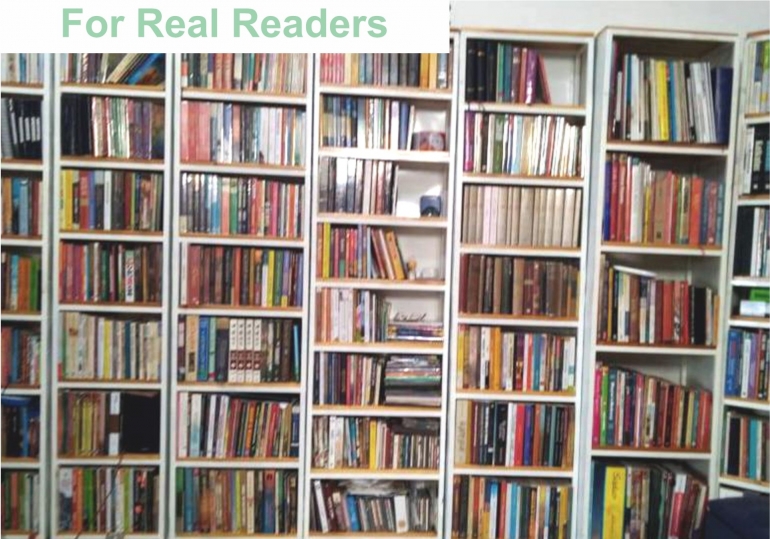Such a conception of the art of reading completely precludes the idea of reading as a duty or as an obligation. In China, one often encourages students to "study bitterly." There was a famous scholar who studied bitterly and who stuck an awl in his calf when he fell asleep while studying at night. There was another scholar who had a maid stand by his side as he was studying at night, to wake him up every
time he fell asleep. This was nonsensical.
If one has a book lying before him and falls asleep while some wise ancient author is talking to him, he should just go to bed. No amount of sticking an awl in his calf or of shaking him up by a maid will do him any good. Such a man has lost all sense of the pleasure of reading. Scholars who are worth anything at all never know what is called "a hard grind" or what "bitter study" means. They merely love books and read on because they cannot help themselves. With this question solved, the question of time and place for reading is also provided with an answer. There is no proper time and place for reading. When the mood for reading comes, one can read anywhere. If one knows the enjoyment of reading, he will read in school or out of school, and in spite of all schools. He can study even in the best schools. Ceng Guofan, in one of his family letters concerning the expressed desire of one of his younger brothers to come to the capital and study at a better school, replied that: "If one has the desire to study, he can study at a country school, or even on a desert or in busy streets, and even as a woodcutter or a swine-herd. But if one has no desire to study, then not only is the country school not proper for study, but even a quiet country home or a fain island is not a proper place for study."
There are people who adopt a self-important posture at the desk when they are about to do some reading, and then complain they are unable to read because the room is too cold, or the chair is too hard, or the light is too strong. And there are writers who complain that they cannot write because there are too many mosquitos, or the writing paper is too shiny, or the noise from the street is too great.
The great Song scholar, Ouyang Xiu, confessed to "three on's" for doing his best writing: on the pillow, on horseback and on the toilet. Another famous Qing scholar, Gu Qianli, was known for his habit of "reading Confucian classics naked" in summer. On the other hand, there is a good reason for not doing any reading in any of the seasons of the year, if one does not like reading:
To study in spring is treason;
And summer is sleep's best reason;
If winter hurries the fall,
Then stop till next spring season.
What, then, is the true art of reading? The simple answer is to just take up a book and read when the mood comes. To be thoroughly enjoyed, reading must be entirely spontaneous. One takes a limp volume of Lisao, or of Omar Khayyam, and goes away hand in hand with his love to read on a river bank.
If there are good clouds over one's head, let them read the clouds and forget the books, or read the books and the clouds at the same time. Between times, a good pipe or a good cup of tea makes it still more perfect. Or perhaps on a snowy night, when one is sitting before the fireside, and there is a kettle singing on the hearth and a good pouch of tobacco at the side, one gathers ten or a dozen books on philosophy, economics, poetry, biography and piles them up on the couch, and then leisurely turns over a few of them and gently lights on the one which strikes his fancy at the moment. Zhin Zhengtan regards reading a banned book behind closed doors on a snowy night as one of the greatest pleasures of life. The mood for reading is perfectly described by Chen Zhiru (Meigong): "The ancient people called books and paintings 'limp volumes' and 'soft volumes'; therefore the best style of reading a book or opening an album is the leisurely style." In this mood, one develops patience for everything. As the same author says, "The real master tolerates misprints when reading history, as a good traveller tolerates bad roads when climbing a mountain, one going to watch a snow scene tolerates a flimsy bridge, one choosing to live in the country tolerates vulgar people, and one bent on looking at flowers tolerates bad wine."
The best description of the pleasure of reading I found in the autobiography of China's greatest poetess, Li Qingzhao (Yi-an, 1081-1141). She and her husband would go to the temple, where secondhand books and rubbings from stone inscriptions were sold, on the day he got his monthly stipend as a student at the Imperial Academy. Then they would buy some fruit on the way back, and coming home, they began to pare the fruit and examine the newly bought rubbings together, or drink tea and compare the variants in different editions. As described in her autobiographical sketch known as Postscript to Zhinshilu (a book on bronze and stone inscriptions):
I have a power for memory, and sitting quietly after supper in the Homecoming Hall, we would boil a pot of tea and, pointing to the piles of books on the shelves, make a guess as to on what line of what page in what volume of a certain book a passage occurred and see who was right, the one making the correct guess having the privilege of drinking his cup of tea first. When a guess was correct, we would lift the cup high and break out into a loud laughter, so much so that sometimes the tea was spilled on our dress and we were not able to drink. We were then content to live and grow old in such a world! Therefore we held our heads high, although we were living in poverty and sorrow...
In time our collection grew bigger and bigger and the books and art objects were piled up on tables and desks and beds, and we enjoyed them with our eyes and our minds and planned and discussed over them, tasting a happiness above those enjoying dogs and horses and music and dance....
This sketch was written in her old age after her husband had died, when she was a lonely old woman fleeing from place to place during the invasion of North China by the Jin tribe.
Taken from: Lin Yutang's The Importance of Living.
Updated and intentionally formatted without page number. Any way, it's just a passage.
Jakarta, 6 July 2019







